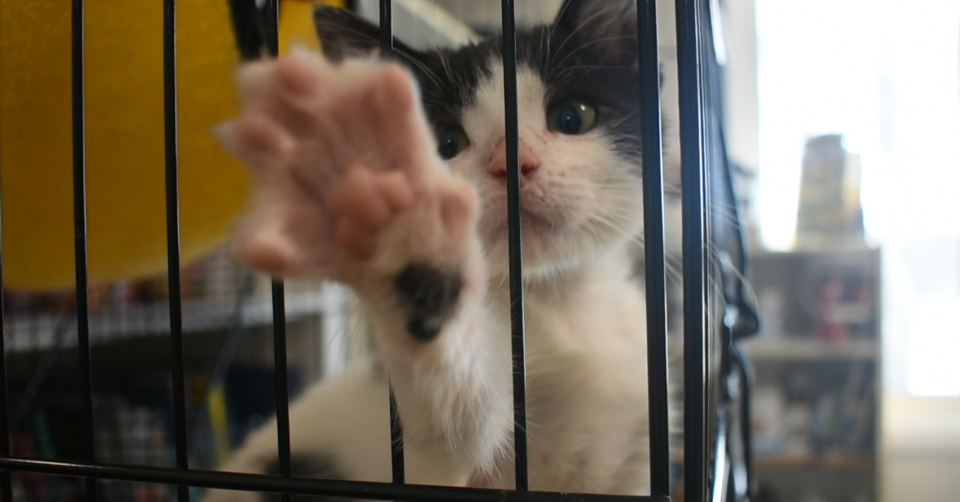KAMSACK — Due to a zoning dispute, Kamsack could lose its only veterinary clinic.
For almost three decades, the Kamsack Veterinary Clinic was located in the Crowstand Centre on Second Street. In October 2023, the centre closed permanently. The clinic was moved temporarily to the fire hall.
After a lengthy search, clinic owner Dr. Ellen Amundsen-Case was able to find an empty house on Third Street, across the street from the Crowstand, that would meet the standards required for a veterinary clinic.
“It was a conditional purchase on the requirement that we be allowed to put a vet clinic in there,” Amundsen-Case said.
The vet contacted the Town of Kamsack, which at the time determined the clinic could be located there.
“Initially, we used the clause that it was a permitted use to be in a residential area,” said Barry Hvidston, the town’s administrator.
Amundsen-Case was then able to provide the bank and lawyers documentation that she was able to operate in the location.
“Those were the conditions of sale when we purchased that house. Having met those requirements, then we purchased the house and renovated to meet our required codes for that clinic and we opened on Dec. 19.”
The vet said she spent around $150,000 to buy the house and get it up to code.
Yet one of the clinic’s neighbours expressed concerns to the town. Their main concerns were that the clinic was noisy and that it shouldn’t be located in a residential district. The Kamsack Times was unable to contact the neighbour before press deadline.
Hvidston said that while he’s heard anecdotes from both sides about the noise, no official noise complaints have been filed. Amundsen-Case said her clinic minimizes noise by sending noisy animals home or placing them in the basement.
The neighbour made an appeal to the provincial Development Appeals Board against the town. The town lost.
“The problem with the building was the setbacks did not conform with the section that we were using,” Hvidston said.
On April 24, the board informed Amundsen-Case that she had 240 days – until Dec. 20 – to move out of the building.
“But they also stated,” Hvidston said, “if the town wished to change the zoning bylaw, we can do so and we've got 240 days to do it and allow Ellen to stay where she is.”
At the April 22 meeting of council, two amendments were proposed to the zoning bylaw: to allow cannabis stores to operate within Kamsack and to allow veterinary clinics to be located in residential areas. A public hearing was held during that meeting to allow public input.
“During the public meeting, we had 18 people attend,” Hvidston said. “There was 11 that were in favour of keeping the zoning bylaw amendments as it was. There was seven against. Of the 11, there was one non-ratepayer.”
Council decided to remove the amendment allowing veterinary clinics in a residential area and passed the amendment allowing cannabis stores.
That decision means that an amendment to allow vets in residential areas is back at step one.
If council wanted to revisit the issue, it would have to pass a first reading to a zoning bylaw amendment. Then it would have to be advertised for at least seven days. A public hearing would then be held and the amendment would have to pass a second and third reading.
After that, the bylaw would have to be sent to the province for approval.
If there province approves the change, council then might have to pass a discretionary use to allow the clinic to stay at its current location.
Hvidston said due to the timelines, council – if it chose to – would have to pass a first reading at the next meeting on May 27 to meet the deadline. That would place a public hearing on June 24.
If council decides to not pass an amendment, Amundsen-Case said she’ll have no choice but to close.
“There are no alternatives. Before I bought this house I looked at everything I could think of. Everything else either won't pass inspection – it won't pass the standards required of a veterinary clinic – or it's too expensive and I won't be able to pay for it.”
If the clinic closed, the nearest alternatives would be in Yorkton, Langenburg, Roblin or Preeceville.
When asked by the Kamsack Times if she wanted to say anything to council, Amundsen-Case said that her clinic has 3,500 active clients, 4,499 active patients, attracts people from at least a 200-kilometre radius, employs three people and performs an average of eight spays/neuters a week.
“It is not our choice to close down. We want to continue to operate, but we do not see any alternative unless we are allowed to continue in our present location.”




